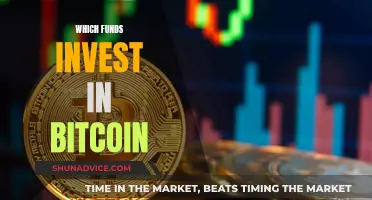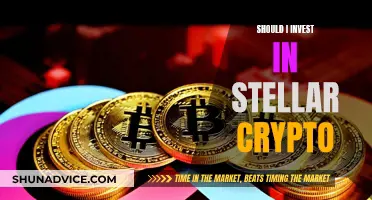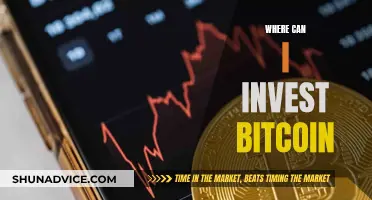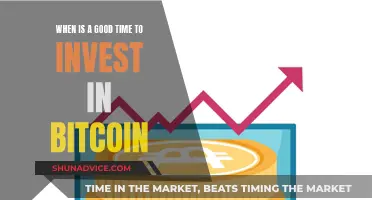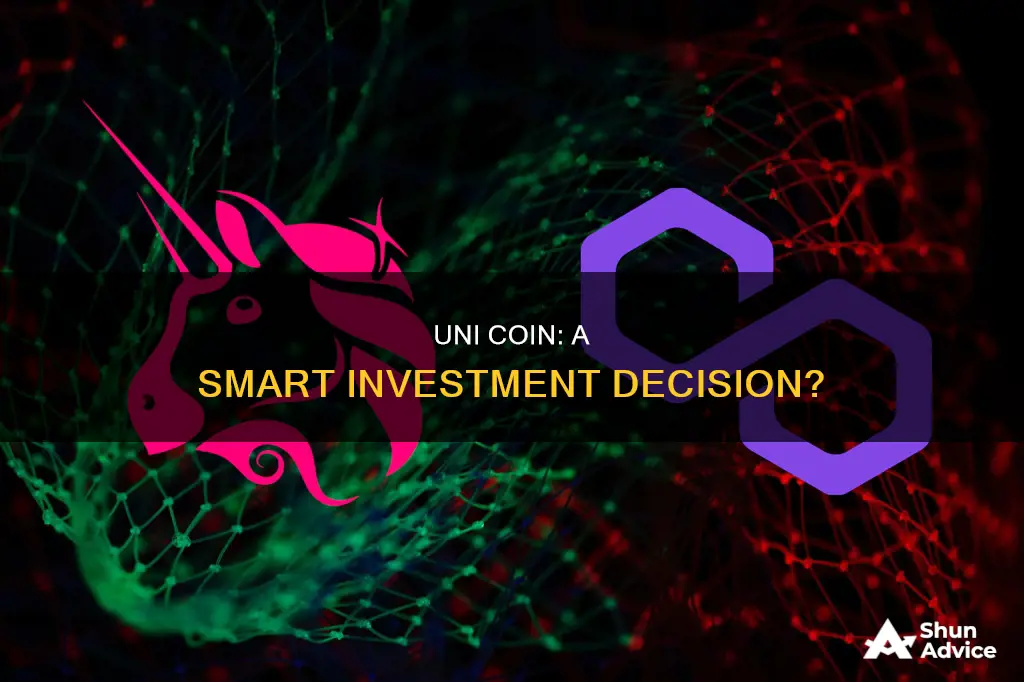
Uniswap (UNI) is a decentralised finance (DeFi) coin and token that has been making waves in the crypto community. UNI's airdrop in 2020 was worth about $800 and made big news in the cryptocurrency industry. Since then, Uniswap has grown rapidly, becoming the most popular decentralised application (DAPP) on Ethereum and the most-used decentralised exchange in the world. In this paragraph, we will explore whether UNI is a good investment and what the future holds for this crypto asset.
What You'll Learn

Uniswap's UNI token price history
Uniswap's UNI token was introduced on 16 September 2020 through a retrospective airdrop to users who had previously interacted with the protocol. Each of these early users received a minimum of 400 UNI tokens, worth about $800 at the time. For those who held on to their free tokens, their 400 UNI tokens are now worth more than $8,000.
The UNI token is an ERC-20 token, meaning it requires Ethereum to function and uses Ethereum's blockchain to process transactions. UNI tokens are used to vote on upgrades to the protocol, and investors can stake their UNI tokens for liquidity to earn interest on their investment.
The UNI token is unique in that it enables shared community governance regarding the growth and development of the Uniswap protocol. UNI token holders can contribute to overseeing the protocol and its wider ecosystem in a trust-minimized way. UNI was one of the first major airdrops in the decentralised finance (DeFi) space.
After its launch, the token quickly increased in value to over $7 before correcting to below $5. In May 2021, during the crypto bull run, UNI reached an all-time high of $42. Throughout the rest of the year, UNI's price continuously decreased, mirroring the unsuccessful price performance of the wider DeFi ecosystem. By the beginning of 2022, UNI had corrected even further, falling to almost $4. Since then, the token's price has slightly recovered, and by mid-2022, it was trading around $6.
As of May 2024, Uniswap's price is $5.84, with a 24-hour trading volume of $72,748,181. The current market cap is $3,503,734,741, with a circulating supply of 600,126,150 UNI coins. The maximum supply of UNI tokens is 1 billion units.
Bitcoin Investment: Worthwhile Now or Wait?
You may want to see also

Uniswap's V3 upgrade
Uniswap V3, launched in May 2021, introduced significant upgrades to the decentralised exchange platform. The most notable addition is concentrated liquidity, which allows liquidity providers (LPs) to specify custom price ranges for their capital allocation, optimising their returns and reducing risk. This feature is exclusive to Uniswap for the next two years, giving it a competitive edge over other decentralised exchanges.
Uniswap V3 also offers multiple fee tiers, allowing LPs to be compensated appropriately for the level of risk they take on. This flexibility in fee structures ensures that LPs can tailor their margins according to the expected volatility of different pairs of assets.
The upgrade also improves the efficiency of Uniswap's oracles, which provide time-weighted average prices (TWAPs) for any period within the last nine days. This enhancement makes it easier and cheaper for integrators to incorporate these oracles into their projects.
Another key benefit of Uniswap V3 is the introduction of "range orders", which allow LPs to deposit a single token within a custom price range. If the market price enters this range, the LP can sell one asset for another along a smooth curve while earning swap fees.
Uniswap V3 also addresses the issue of high gas costs associated with the previous version. The gas cost of V3 swaps on the Ethereum mainnet is slightly cheaper than V2, and transactions on the Optimism deployment are expected to be significantly more affordable.
Overall, Uniswap V3 brings greater flexibility, efficiency, and cost-effectiveness to the platform, making it an even more attractive option for decentralised finance (DeFi) enthusiasts.
A Beginner's Guide to Initial Bitcoin Investment
You may want to see also

Uniswap's safety and security
Uniswap's security and safety features are designed to protect users from the risks associated with cryptocurrency exchanges. As a decentralised exchange, Uniswap does not hold custody of a user's cryptocurrency, reducing the risk of hacking. This is in contrast to centralised exchanges, which are larger targets for hackers as they hold custody of a user's cryptocurrency.
Uniswap's smart contracts are a crucial component of its security. Smart contracts are code uploaded to the blockchain, allowing for the autonomous transfer of money based on parameters in the code. Uniswap is essentially a group of smart contracts working together to facilitate decentralised exchanges. The code has the same decentralised, immutable, and borderless capabilities as cryptocurrencies, which enhances security.
To ensure the integrity of these smart contracts, Uniswap has conducted formal verifications and code reviews. Between January 8 and April 30, a team of six engineers formally verified crucial components of the smart contracts for Uniswap V2. This included numerical error analysis and a code review of the core smart contracts and their periphery. The report also included "Design Comments", which offer a deep technical understanding of the choices made in Uniswap V2.
Uniswap also has an ongoing bug bounty program, encouraging the community to review its code and report any security issues. This open approach to security allows for constant improvement and the quick identification of vulnerabilities.
The Uniswap Protocol includes permissionless smart contracts, allowing anyone to create a pool with any token. This has resulted in thousands of tokens available for trade. To help users understand the risk profile of each token, Uniswap has included safety labels as an added layer of security. These warnings help users make informed decisions without endorsing or criticising any particular token.
Uniswap Labs has also developed Permit2, which unifies permissions for any token across multiple applications. This feature improves safety by allowing approvals to expire instead of remaining active for a wallet's entire token balance. It also reduces the number of clicks required by users, enhancing the user experience.
Uniswap's security measures aim to protect users from potential losses and ensure a safe trading environment. The combination of decentralisation, smart contract security, and community engagement in identifying vulnerabilities contributes to the platform's overall safety.
A Beginner's Guide to Investing in Bitcoin
You may want to see also

Uniswap's legitimacy
Uniswap is a legitimate, open-source, decentralised cryptocurrency exchange that was created on 2 November 2018 by Hayden Adams, a former mechanical engineer at Siemens. It falls into the category of a DeFi (decentralised finance) product because it uses smart contracts to facilitate trades instead of a centralised exchange. Uniswap is built on Ethereum's blockchain and is the most used decentralised exchange in the world.
Uniswap allows for the automated, decentralised exchange of ERC-20 tokens. Its goal is to lower the barrier of entry to financial markets by making it easy to join the DeFi movement. The platform aims to allow anyone to create their own liquidity pools. Currently, there are over 400 active trading pairs and 6000 liquidity pools on Uniswap.
Uniswap is governed by a global community of UNI token holders and delegates. Anyone can participate in the Uniswap ecosystem as a developer, trader, or liquidity provider in a financial marketplace that is open and accessible to all.
Uniswap has received investments from business angel Ric Burton and venture capital firms, including Andreessen Horowitz, Paradigm Venture Capital, Union Square Ventures LLC, and ParaFi. As of October 2020, Uniswap was the largest decentralised exchange and the fourth-largest cryptocurrency exchange overall by daily trading volume, with an average daily trading volume of $220 million.
However, Uniswap is not without its flaws. In July 2020, complaints emerged about "fake tokens" on the exchange. Because anyone can list a token on Uniswap, and there is no review process due to its decentralised nature, it is easy for scammers to create tokens with names similar to popular DeFi platforms and trick users into purchasing worthless tokens. To address this issue, Uniswap introduced Lists in August 2020. These Lists aim to establish the legitimacy of tokens based on how many Lists they are included on and how reputable those Lists are.
Silver Coin Investing: Old Coins, New Opportunities
You may want to see also

Uniswap's competitors
Uniswap is a decentralised exchange built on Ethereum's blockchain. It is an automated market maker (AMM) that facilitates swaps between ERC-20 tokens on the Ethereum blockchain through immutable smart contracts. It is currently the largest AMM exchange on Ethereum.
Uniswap has many competitors, including:
- 1inch Network: a multichain alternative that automatically finds the most efficient route for token swaps.
- PancakeSwap: a Binance Smart Chain-based AMM exchange with liquidity incentivised through farming mechanics, lottery, and collectibles gamification.
- SushiSwap: a multiple-chain alternative with additional features, including yield farming, lending, and staking.
- QuickSwap: a low-fee alternative deployed on Polygon, a scalability solution that offers lower fees and faster transactions than Ethereum.
- DYdX: a derivatives and margin trading platform that attempts to bring derivatives on-chain through Ethereum smart contracts.
- GMX: a highly efficient decentralised derivatives platform, currently available on the Arbitrum and Avalanche blockchain platforms.
- Kwenta: a decentralised exchange powered by Synthetix, a unique DeFi protocol that enables the creation of derivative tokens.
- SunSwap: an AMM built on the TRON blockchain, with similar functionality to Uniswap.
- CoW Swap: a decentralised exchange aggregator that acts as an "aggregator of aggregators", protecting users from various forms of MEV (maximal extractable value).
- DODO DEX: a decentralised exchange that uses a Proactive Market Maker (PMM) design, which is a variant of the AMM design.
- Orca: a Solana-based decentralised exchange that has received backing from prominent crypto investors.
- Osmosis: a decentralised exchange project that uses the automated market maker approach to determine prices of digital assets, facilitate peer-to-peer trading, and run liquidity pools.
- Curve Finance: an exchange liquidity pool on Ethereum, designed for stablecoin trading, low risk, and supplemental fee income for liquidity providers.
- Vertex Protocol: a decentralised exchange that specialises in cryptocurrency trading and financial services, offering spot and perpetual trading.
- Injective: a company that focuses on blockchain technology within the financial sector, providing an open, interoperable network.
- DODO Exchange: a decentralised trading protocol for Web 3, providing on-chain liquidity and leveraging the proactive market maker algorithm.
- Kyber Network: a multi-chain crypto trading and liquidity hub that connects liquidity from different sources to enable trades at suitable rates.
- 1WORLDBLOCKCHAIN: a company that focuses on providing digital payment solutions and asset management using blockchain technology.
The Ultimate Guide to Investing in Ethereum and Bitcoin
You may want to see also
Frequently asked questions
Uniswap is a decentralised exchange built on Ethereum's blockchain. It is the most popular decentralised application (DApp) on Ethereum and the 23rd largest digital asset globally by market capitalisation.
Uniswap lets investors swap cryptocurrency without needing to make an account with a centralised exchange. This lowers the risk of being hacked, adding a layer of security. Investors don't need to make an account and can trade cryptocurrencies anonymously. As no single entity controls the exchange, no one can halt the trading of assets.
The Uniswap token is an ERC-20 token, meaning it uses Ethereum's blockchain to process transactions. UNI tokens are used to vote on upgrades to the protocol, and investors can stake their UNI tokens for liquidity to earn interest on their investment.
Uniswap is considered a good investment by many experts. It has been projected that Uniswap's price could grow further in the long term. In 2021, UNI returned 300% in a year, and experts think the UNI coin has plenty of growth ahead due to its extensive usage.


